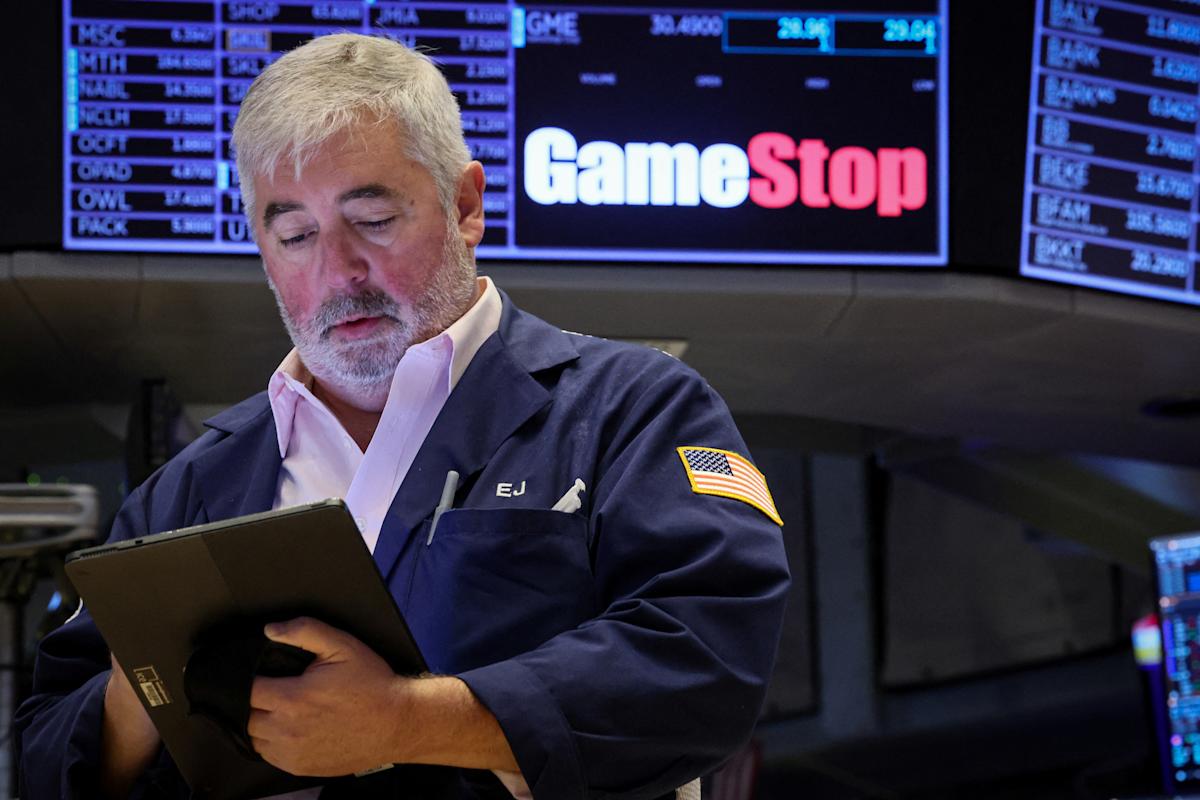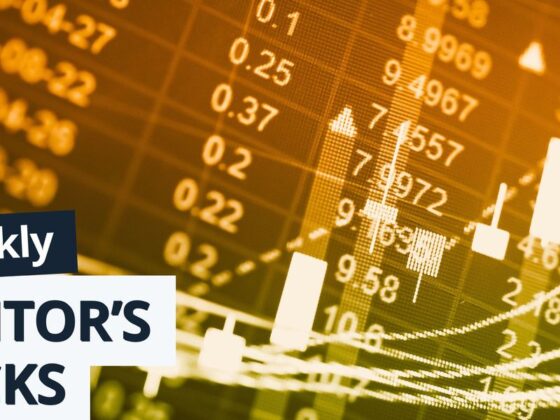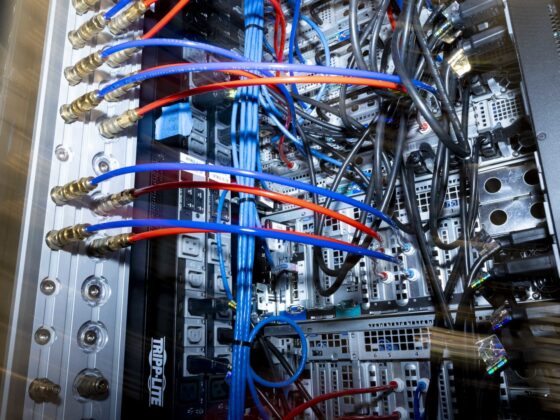Shares in GameStop (GME) slipped into correction territory during pre-market trading on Friday, following a 10% increase in the previous session. The volatility came amid a broader rally in digital asset-linked equities, spurred by bitcoin (BTC-USD) hitting a record high above $110,000.
The world’s largest cryptocurrency by market capitalisation has soared in recent weeks, as investors view digital currencies as a potential hedge against macroeconomic and geopolitical risks. Heightened tensions in global trade, concerns over US debt sustainability, and general market uncertainty have driven renewed interest in alternative assets.
GameStop (GME), the video game retailer at the centre of several retail trading frenzies in recent years, has been swept up in the latest wave of crypto enthusiasm. The company’s shares first jumped in February following a cryptic social media post by CEO Ryan Cohen.
The image, which showed Cohen alongside Strategy (MSTR) chairman Michael Saylor, was widely interpreted as a signal of the company’s growing interest in digital assets. Strategy is the largest corporate holder of bitcoin (BTC-USD).
Read more: UK ‘bargain' stocks that have outperformed the market long-term
In a statement accompanying its its fourth-quarter results, the company announced that its board had “unanimously approved bitcoin (BTC-USD) as a treasury reserve asset.” The move brought GameStop (GME) in line with a growing cohort of firms integrating crypto into their balance sheets.
The update was seen by investors as a signal of intent, positioning GameStop (GME) alongside other crypto-forward companies looking to diversify reserves and capitalise on the digital asset boom.
Shares in Advance Auto Parts (AAP) surged 57% in the previous session — the largest single-day gain on record, according to Morningstar — and continued to climb in pre-market trading on Friday, after the US auto parts retailer reaffirmed its full-year guidance and posted better-than-expected quarterly results.
The company reported net sales of $2.58bn (£1.91bn) for the first quarter, down 7% from the same period last year. The decline was largely attributed to the sale of its wholesale distributor unit, Worldpac, in November, as well as a number of store closures. Still, the figure topped analyst expectations of $2.51bn.
Advance posted an adjusted net loss of 22 cents per share, significantly narrower than Wall Street’s forecast of a 69 cent per share loss.
“The Advance team delivered better than expected sales and profitability in the first quarter and I want to thank them for their hard work and commitment to serving our customers. During the quarter, we also successfully completed our store footprint optimisation within an accelerated timeframe, while continuing to make progress on our other strategic initiatives,” Shane O’Kelly, president and CEO, said.













